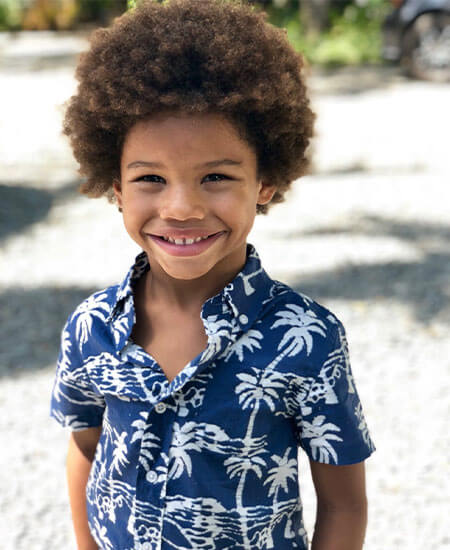
Is Your Child A Candidate For Myopia Management?
Rapidly progressing myopia is more than just a hassle — today’s research shows that it will put your child at increased risk of developing serious eye diseases in late adulthood, such as glaucoma, cataracts, retinal detachment and macular degeneration.
Fortunately, Dr. Jerry Jenks can help slow the progression of your child’s myopia with a customized myopia management program.
What is Myopia Management?
Myopia management is an evidence-based program that can halt or slow the progression of myopia in children. Each myopia management treatment has varying benefits and levels of efficacy; Dr. Jerry Jenks can help you decide which method is most suitable for your child depending on their age and myopia level.
Is Myopia Management Right for My Child?
The ideal candidate for myopia management is a child or young adult with practically any degree of myopia. Although it’s best to begin myopia management as early as possible, many older children, teens, and college students can still benefit from this treatment.
 But first, here are a few factors to consider before embarking on a myopia management program:
But first, here are a few factors to consider before embarking on a myopia management program:
- The patient must be at least 6 or 7 years of age
- He or she must be willing and able to care for contact lenses
- Must have a certain level of maturity and responsibility
Below are some examples of myopia management patients:
A 9-year-old recently diagnosed with myopia is already noticing the need to increase her prescription. She begins myopia management to slow down or stop her deteriorating distance vision. This is a great time to start myopia management, as it offers the best chance of preserving long-term eye health.
Myopia management is also suitable for young teens or pre-teens. A 12-year-old who wants to eliminate the need for daytime glasses or contact lenses may find certain myopia management treatments to be very appealing.
A young teen who feels insecure about their appearance when wearing glasses, or who finds that glasses interfere with sports and other activities, may also find myopia management to be a great option.
A 16-year-old teen with mild to moderate myopia hopes to undergo corrective surgery in the future. If they begin myopia management at 16, they have a good chance of stabilizing their vision until they meet the age requirements for corrective surgery a few years later. In addition to decreasing their risks of future eye disease, slowing their myopia progression may increase their chance of successful corrective surgery.
We Can Help Control Your Child’s Myopia
Myopia management works best when parents wish to take a proactive role in preserving their child’s vision in the long term. The earlier a child receives myopia management, the easier it is to control myopia’s progression and the better the long-term results.
If your child has myopia, take action and help mitigate their risk of developing eye disease in the future. For further information or to schedule your consultation, contact Outreach Vision today.
Our practice serves patients from Platte City, Kansas City, Liberty, and Leavenworth, Missouri and surrounding communities.




